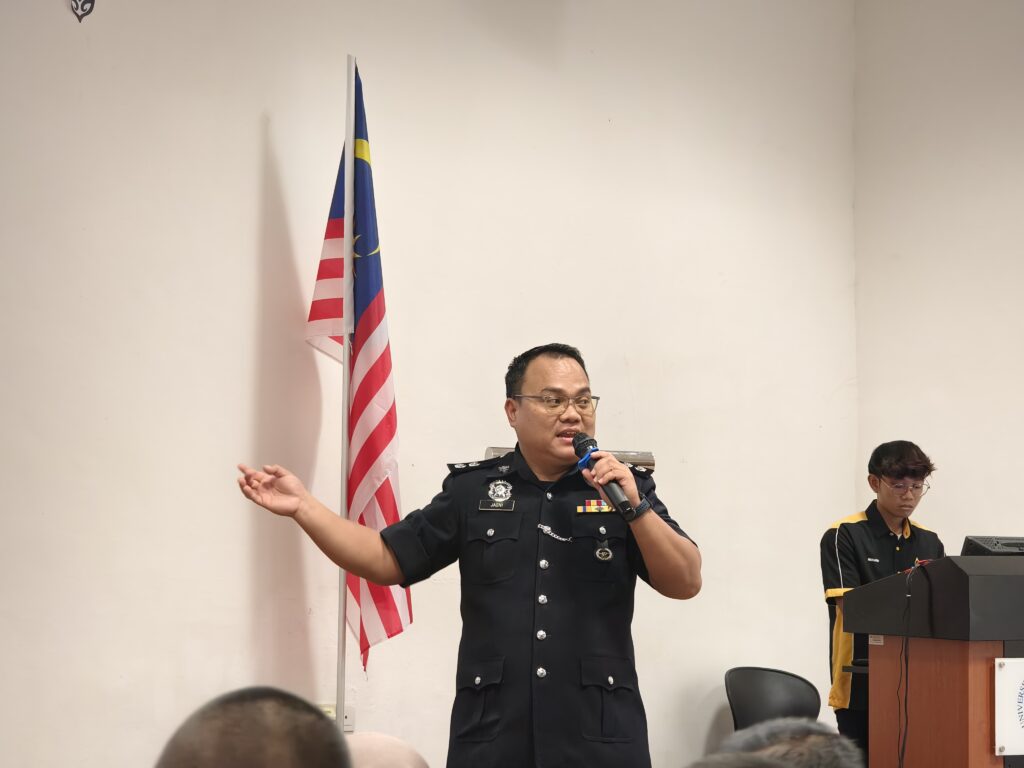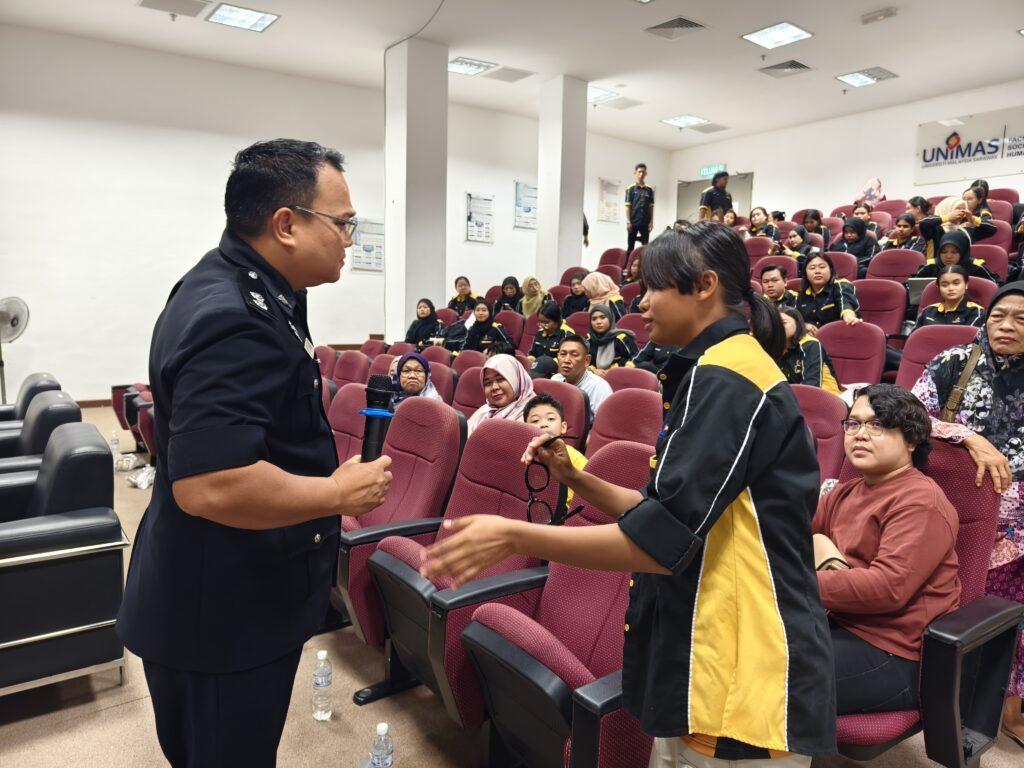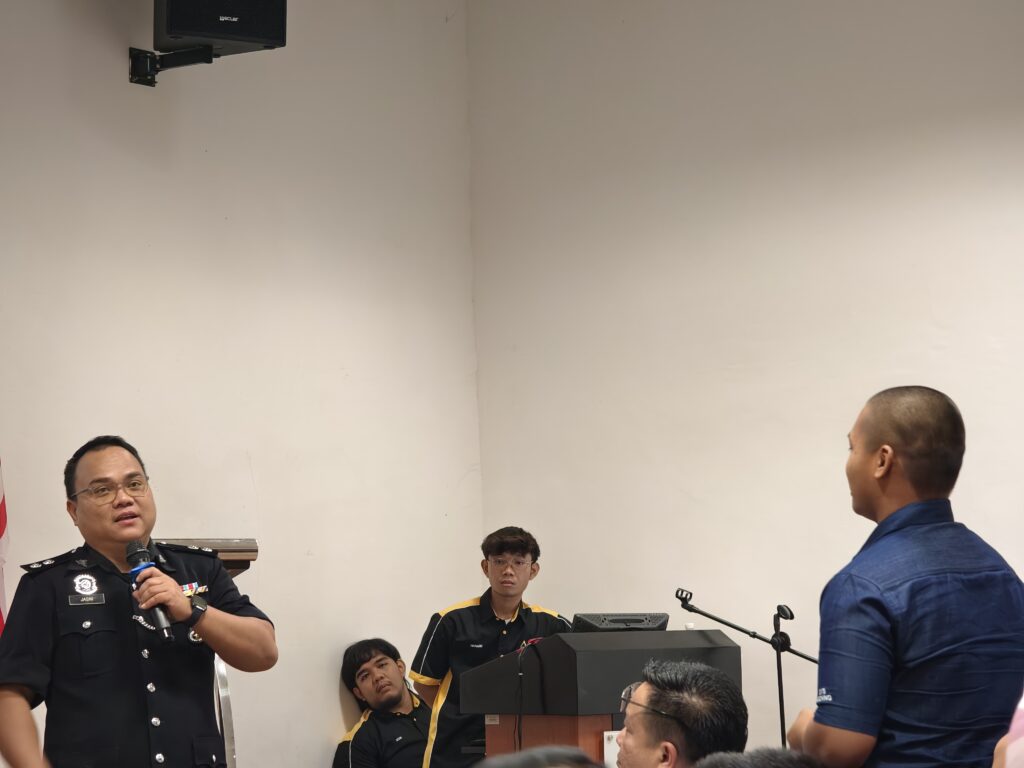Written by Elwynna Tera Anak Jantong, Machilene Anak William, Nur Farhanah Binti Rashdan, Nurul Husna Sofia Binti Yunus, Sharmila Gracemit Anak Julai, Sheryl Esmerelda Gilbert, Siti Aisyah Binti Rozai (Year 3 Student, Social Work Program, FSSH Unimas)
In an effort to bridge academic learning and real-world impact, third-year Social Work students from Universiti Malaysia Sarawak (UNIMAS) recently carried out an impactful community-based learning initiative under the SSF3263: Deviant and Rehabilitation Services course (supervised by Dr Kamsiah Ali). Known as The CARE Project, this initiative focused on enhancing community wellbeing through early drug crime prevention and awareness.

At the heart of the project was an awareness talk titled “Drug-Free Community: Prevention Education”, delivered by Inspector Jasni Anak Nimos, Head of the Narcotics Criminal Investigation Division, IPD Kota Samarahan. The talk brought together diverse participants, including 10 trainees and 5 staff members from Sekolah Tunas Bakti, 25 community representatives, and 86 Year 3 Social Work students.
Why It Matters
The objective of the talk was to educate and engage participants on the early signs, causes, and consequences of drug use. Inspector Jasni’s insights provided a compelling look into how individuals often become entangled in drug abuse, highlighting key triggers such as peer pressure, curiosity, and social influences.
Participants were also urged to view drug prevention as a shared social responsibility. By raising awareness and promoting early intervention, the talk emphasized that the fight against drug abuse goes beyond individual will, but instead it requires informed, supportive communities.
Impact and Insights
The event successfully reached vulnerable and at-risk groups, particularly young adults, the demographic most affected by drug-related offenses. According to recent data from the National Anti-Drug Agency (2024), individuals aged 19 to 39 make up the highest proportion of drug offenders in Malaysia, numbering 98,977. Through interactive discussions and real-life examples, the program encouraged participants to rethink common perceptions of drug addiction.
Additionally, participants learned about the long-term effects of drug use on physical and mental health, including depression, emotional disorders, and nervous system damage. These discussions were key to reinforcing the need for early detection and preventative strategies.
A Model for Community-Based Education
The CARE Project aligns with national priorities such as the KPT Inspirasi Focus 3: Knowledge Transfer and Sharing Program and the Higher Education Roadmap 2025 (HTPT 2025) – Sejahtera MADANI. It also supports the 1 IPT: 1 District initiative, emphasizing the important role of universities in driving local development.
Importantly, the project contributes to Sustainable Development Goal (SDG) 16, which aims to promote peaceful and inclusive societies and build strong, accountable institutions.
Learning Beyond the Classroom


For the students involved, this initiative offered a valuable opportunity to apply theory to practice. Through direct engagement, they developed a deeper understanding of the societal, economic, and environmental factors that contribute to deviant behavior, especially drug-related issues.
More than just a class project, the CARE initiative helped students recognize their role as future social workers in prevention, intervention, and long-term community empowerment. By stepping outside the classroom, they stepped into their roles as change agents, equipped with compassion, ethics, and a commitment to social justice.
FSSH – A Partner for Social Change